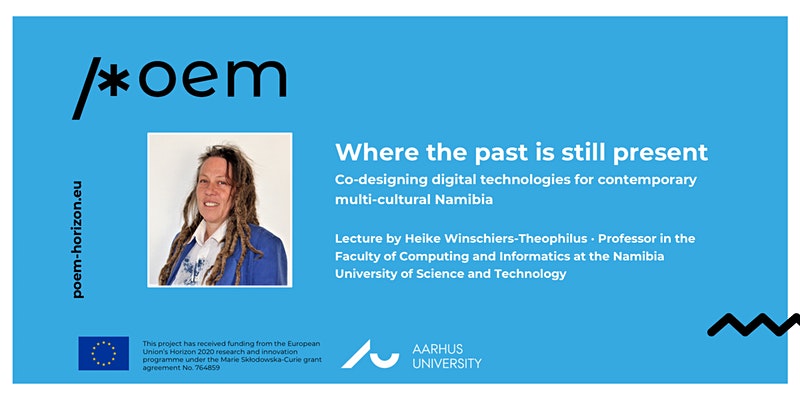
Where the past is still present – Co-designing digital technologies for contemporary multi-cultural Namibia
Guest Lecture by Professor Heike Winschiers-Theophilus
Namibia, twenty-nine years after gaining independence, has grown into a multi-ethnocultural nation where (some) indigenous people have preserved their traditions till today, former freedom fighters are active members of political and social systems, previous colonisers have maintained links to resources and a large and modern population of youth find themselves amidst socio-economic challenges.
Within these co-existing layers and contexts of pasts, presents and futures, we are researching and co-designing technologies with indigenous and marginalised communities. We believe that the appropriation of (emerging) technologies through co-design, allows for a repositioning of disregarded members of society, such as indigenous minorities and marginalised youth, amplifies unheard voices and elicits a deeper reflection of identity and cultural heritage by communities. Moreover, co-created interactive media can draw wider audiences into dialogues on critical societal issues. In this presentation, I will share anecdotal findings from our numerous and distinct participatory community technology projects in Namibia; ranging from safeguarding indigenous knowledge with members of the OvaHimba tribe, mediated inter-media dialogues with the San, and co-constructions of public interactive installations with the youth on past, present and futures of colonialism and other societal issues.
Biography Professor Heike Winschiers-Theophilus
Heike Winschiers-Theophilus, a Professor in the Faculty of Computing and Informatics at the Namibia University of Science and Technology. She has lived and lectured in Namibia since 1994. Her research focuses on co-designing technologies with indigenous and marginalised communities. In 2008 she established a niche area research cluster aiming for the implementation of an Indigenous Knowledge Management System. She leads this research group consisting of staff members, PhD, Master and Honours students, external international research collaborators, in partnership with local indigenous knowledge holders. The projects have been supported by local and international grants. In 2011 she co-chaired the inaugural Indigenous Knowledge Technology Conference, in Windhoek, initiating a worldwide dialogue on the tensions in digital representation of Indigenous Knowledge. In 2014 she co-chaired the 13th Participatory Design conference in Windhoek, Namibia hosted in Africa for the first time. She introduced local design challenges as a novel element to the conference whereby international participants collaborated with local citizens in deriving practical solutions. Concerned with socio-economic challenges in the country, such as the high youth unemployment rate, gender-based violence, reading cultures and general living conditions in the informal settlement, she has established a number of research-based community outreach projects contributing to societal transformation.
Announcement
Due to the current development of the COVID-19 outbreak, the guest lecture of Professor Heike Winschiers-Theophilus has been cancelled at Aarhus University. The lecture will be made available online in form of a video talk in due time.

